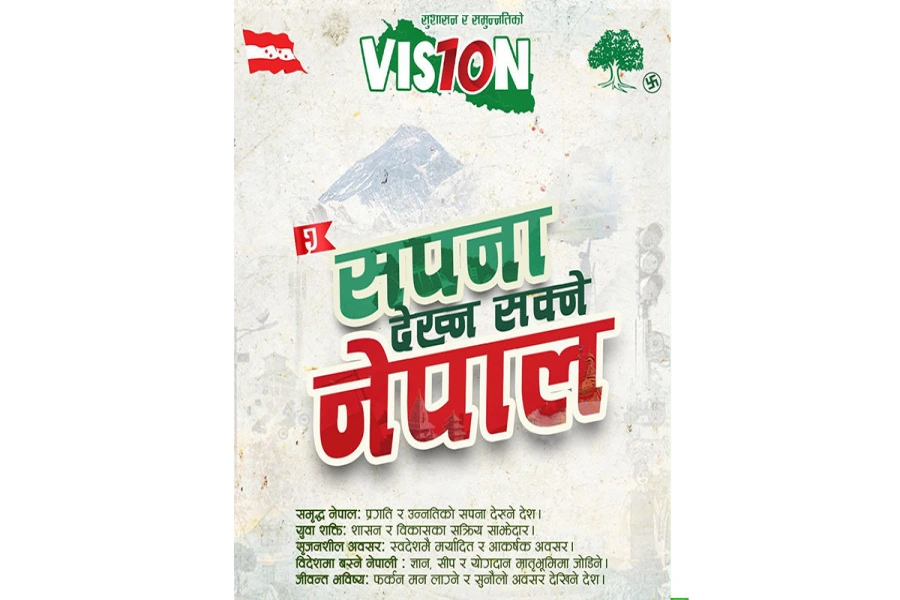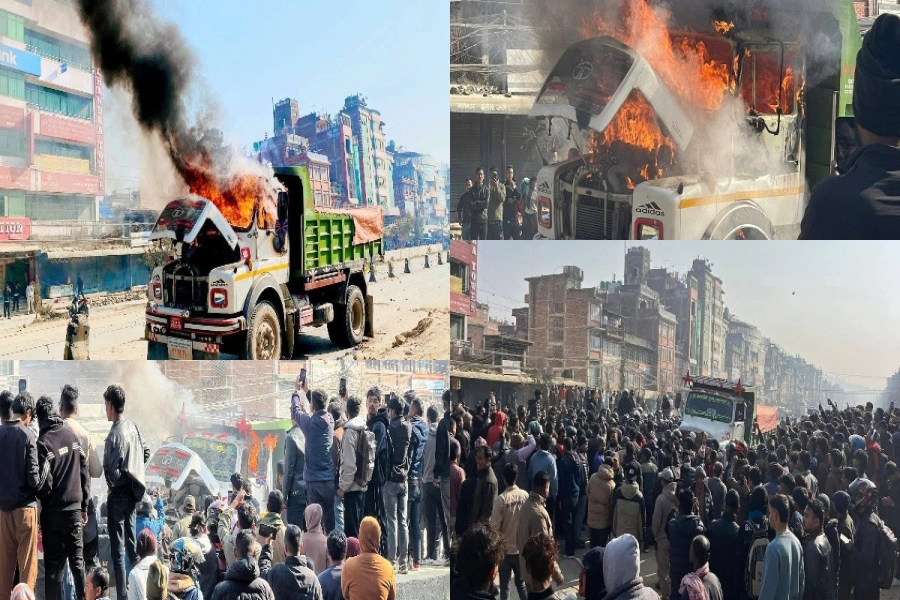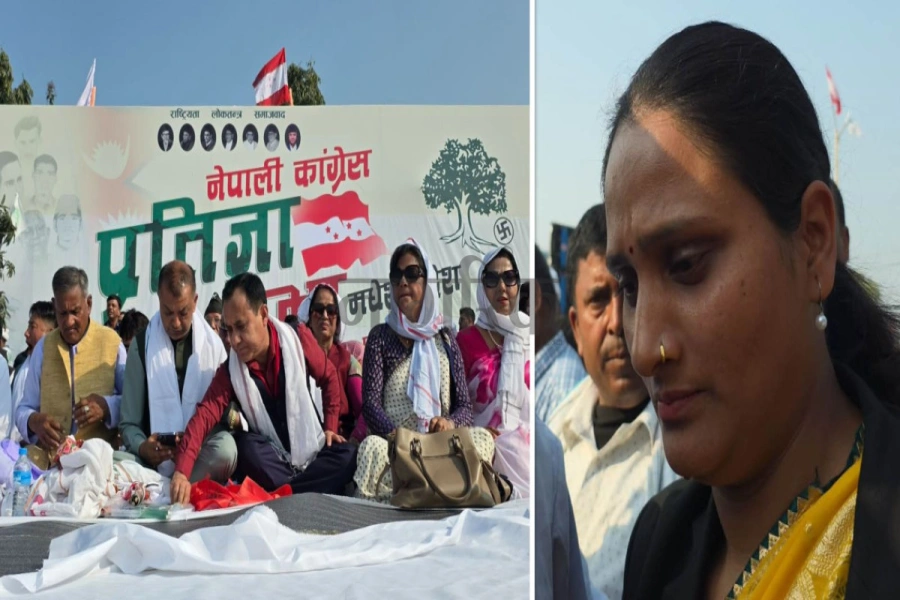KATHMANDU, June 22: “A girl who was under the control and detention of the government security forces for three years had a one-and-a-half-year-old child in her arms when she was freed. Who is responsible for finding out the father of the child born in state captivity?
With this serious question, the conflict-affected women are now knocking on the doors of different agencies. They have been demanding the attention of the Truth and Reconciliation Commission, Nepal on this and similar issues.
In this regard, Devi Khadka, the central coordinator of the National Organization of Women Raped during Conflict, met with Prime Minister Pushpa Kamal Dahal on Wednesday. They drew his attention to these issues which started to be raised after meeting the women victims from all over the country in Kathmandu on March 28, 2022 to March 29, 2022 .
The then prime minister Sher Bahadur Deuba and the leader of the ruling CPN (Maoist Center) Pushpa Kamal Dahal were present at the meeting aimed at addressing the issues faced by the conflict victims. When the then CPN (Maoist) waged a 'long-term people's war' from February 13, 1996 to November 21, 2006, the issue of women raped during the conflict was not raised anywhere. Khadka informed Republica that Dahal and Deuba, who became the leaders of the ruling parties, and were present at the press conference with their eyes welled up when they heard the problems of the women raped during the conflict.
Coincidentally, during the 10-year armed insurgency, Dahal was the rebel leader and Deuba was the prime minister. Khadka is not only a strong leader during the Maoist insurgency, but has also been a member of parliament and a minister. But since the issue of women who were raped during the conflict was dormant and the state did not realize the seriousness of their problem, she is taking it as a campaign across the country.
Journalists who perished in the Maoist armed conflict in Nepal
_20230114102317.jpg)
As this issue, which was reported to the then Prime Minister in mid-April, 2022, has not yet been addressed, the victimized women are ready to hold conferences in all the seven provinces of the country. “What will happen to the country’s image when the state does not pay attention to this issue and the international community starts raising questions about it?” Khadka said, “There are people in our contact who need to be saved by the state now.”
She said that the cases of such victimized women were not taken into consideration even when the Truth and Reconciliation Commission was formed and complaints were received from all over the country. “The process has not been started to address women who are victims of sexual violence,” she said, “It is necessary to improve it by making provisions to take new complaints.”
They have presented the point that the government, parliament and agencies of United Nations should be involved on behalf of women who are victims of sexual violence. Khadka herself exposed these issues in the sub-committee formed by the Law, Justice and Human Rights Committee of the House of Representatives to discuss the transitional justice bill.
She has demanded the formation of a specialized unit and make it mandatory for victim-friendly research experts within the commission to investigate the incidents of rape and sexual violence and to establish the truth. Similarly, there is a demand for immediate provision of relief, treatment and peace fund for victims of rape and sexual violence during the armed conflict.
In order to ensure accountability in such serious crimes by removing the statute of limitation in the Nepali law regarding the registration of rape and sexual violence during the armed conflict, there is also a demand to make necessary amendments to the Nepali laws including the civil crime code so that there is no limitation and barrier to filing complaints in accordance with the international law.
In the definition of the bill, in sub-section 4 (j) of Section 2, it has been requested to remove the word "unarmed person during armed conflict" in the context of rape and sexual violence. It has been seen that the bill has made provisions such that sexual violence can be done against people engaged in armed activities. They have also demanded that ‘serious sexual violence after attempt to rape’ should be included in its definition section.”
Firstly, many have not been able to open up to discuss the issue of 'sexual violence' during the conflict. Secondly, even if someone tries to take forward these issues, the fear of society and the family is also an obstacle.
"There is social pressure, family pressure and medical pressure on women who are victims of sexual violence," Khadka says, "These victimized women are not even able to get treatment." After the state ignored this matter, she met the head of the United Nations Mission in Nepal, Hanaa Singer Hamdy, and informed her. “When the state ignores such an aspect, it will not feel pleasant to hear the issue raised from elsewhere," she said, “We have not asked anyone to take them to The Hague, for ignoring even such a simple thing is to expose the cruel character of the state.”
According to Khadka, about 3,000 people who have suffered serious sexual violence have come in contact with the organization. During the conflict, the number of those arrested and subjected to rape and sexual activity is large. “Even the grandmother, mother and granddaughter of one house were raped,” she said, “Even though these women are citizens of this country, the state has segregated them. In majority, they feel for being stateless where there is no law and justice for them.”
There are those who are unable to participate in direct politics because they were raped. Their health problems are so serious and critical that they (women) have stopped going to public places because of shame. Some of these women's husbands have brought them to the program and said, "Sister, don't make us more humiliated than this."
Even though we had to face such a situation during the agitation to make the country a republic, we are not in a position to make this matter public now. Some of the raped women have even given birth to children. “One child was born with a disability,” said Khadka, “Shouldn't the state take responsibility for these children who are unaware of their father? When will the state pay attention to the health and livelihood of such conflict-affected women?”





































